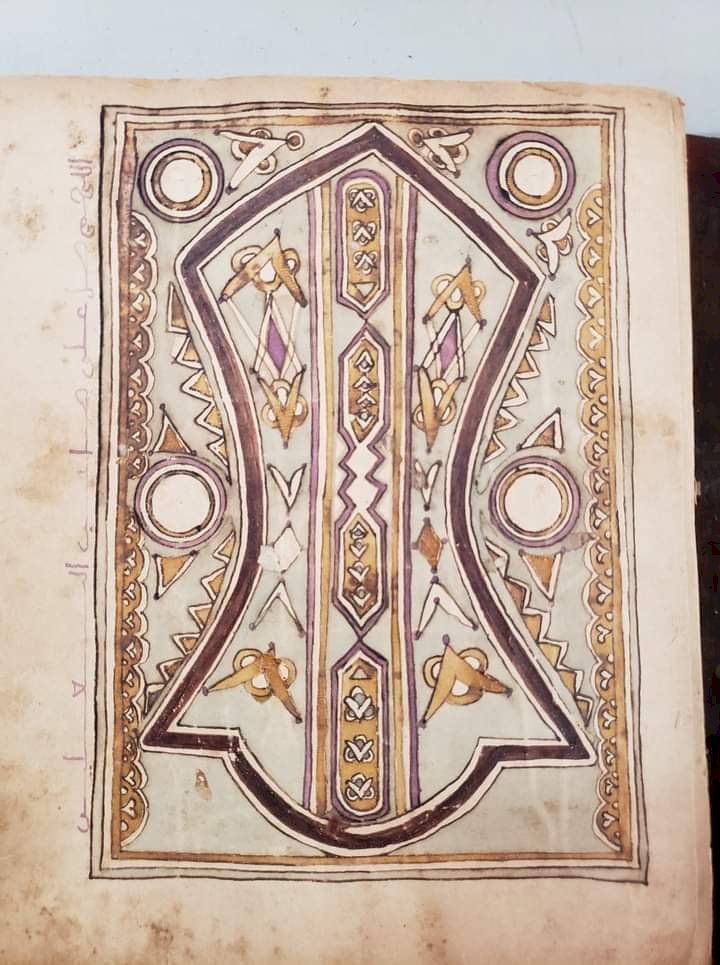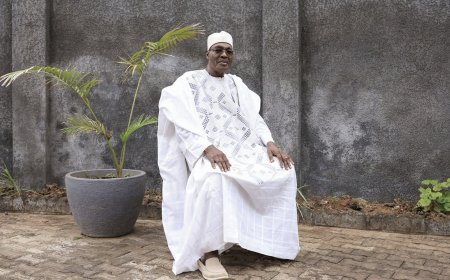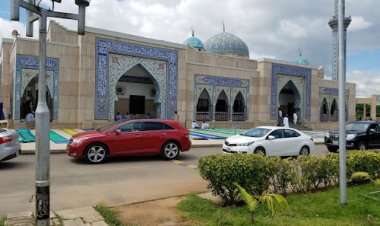THE NUUR’L-MUHAMMADIYYA & THE REVIVAL OF THE SUNNA

THE NUUR’L-MUHAMMADIYYA & THE REVIVAL OF THE SUNNA
by Shaykh Muhammad Shareef bin Farid
Many people of our times who adhere to the outward Sunnan of Muhammad, upon him be peace; are devoid of his inner character and inward illuminations; while many people of our age who claim that their Goal is to attain the inner illuminations of Muhammad, are averse to the outward Sunnan of Muhammad, upon him be peace. How can either of them succeed?!
One is outwardly full and inwardly empty; while the other makes inward claims while being bereft of the outer evidences of those claims. One has taken on the outward jurisprudence of sharia of Islam; while their lack of spiritual purification in the inward excellences of Ihsan makes them one of the causative factors for corruption and tribulation. The other has taken on the inward journey of spiritual excellence, yet they remain naked of the outward spring-well from which these excellences originate – adherence to the LAW. The result is that these spiritual charlatans end up embracing and spreading some of the worst religious heresies.
Shaykh ‘l-Akbar Muhy’d-Deen Ibn Arabi, once said:
“Do not place your feet where you have not seen the footprints of your Prophet, may Allah bless him and grant him peace. You should only place your feet upon his footprints if indeed you desire to be among the people of the highest spiritual ranks and to have perfect witnessing in the stations of intimacy with Allah.” 1
Imam Abu’l-Hassan as-Shadhili, said: “There is no greater miracle than the miracle of belief (imaan) and following the Sunna. Whoever is given these two and then yearns for anything else, then he is an arrogant liar.”
It is clear from the citation that the Sufi Path was founded upon the soundness adherence to the Book of Allah and the Living Sunna of His Messenger. Its goal is to take the servant into the very presence of the Prophet, may Allah bless him and grant him peace until the light of Muhammad (nuur ‘l-Muhammadiyya) pervades his entire being.
The Shehu described this profound station in his Fulfulbe’ poem,
“My friends, I began my praise in order to comfort my loneliness,
Into my heart he keeps coming in,
I am longing to see him, the Most Excellent of the prophets,
Muhammad, Ahmad, for he excels them all.
In my heart I sing his praises.” 2
What the Shehu describes here was the causative factor for the many spiritual transformations that he experienced during his 63 years. In the beginning, the Shehu was permeated with a passion and yearning to be in the presence of the Prophet, may Allah bless him and grant him peace, until he became annihilated in his Sunna. Thus, to the Shehu, adherence to the Sunna of Muhammad, may Allah bless him and grant him peace, both inwardly and outwardly was the sole means by which one could arrive at the door of direct knowledge and witnessing of the Lord of Truth.
Shehu Uthman Dan Fodio felt that the Way of Muhammad (Tareeq ‘l-Muhammadiyya) and adherence to his Sunna was the most perfect path to Allah and the sole means of obtaining the divine mercy of Allah ta`ala.
The Shehu says
“With my body, everyday truly,
I long to see Muhammad, highly placed indeed,
And my spirit, its food is praising him in truth,
When I drink the waters of his praise, truly,
I feel nothing but love for him.” 3
Allah ta`ala says in His Infallible Qur’an: “Obey the Messenger so that you may receive mercy.” 4
This entails absolute annihilation and assimilation into the Living Sunna of Muhammad, may Allah bless him and grant him peace.
It is for this reason that Shaykh al-Junayd al-Baghdadi, may Allah be merciful to him said, “We have learned this lofty science by means of the Book and the Sunna.”
Shaykh ad-Darqawi, may Allah be merciful to him said, “If you want to be purified of doubts and spiritual illusions, then always be strengthened by the Sunna of the Prophet, may Allah bless him and grant him peace.”
He also said: “There is no doubt that your safety, my safety, and the safety of everyone lies in following the people of the sunna of Muhammad. They are the jama`at about which the tradition of the Prophet, may Allah bless him and grant him peace, has come down, ‘The hand of Allah is with the jama`at’, since there is no doubt that they follow the agreement of Allah. If there are few people in it, still they are many. The jama`at can consist of one man if his foot is firm in the Sunna of the Messenger of Allah, may Allah bless him and grant him peace, outwardly and inwardly. A jama`at of many people is not a jama`at if it is not based upon the Sunna of the Messenger of Allah, may Allah bless him and grant him peace.”
The Messenger of Allah, may Allah bless him and grant him peace is the very source of mercy and the means of Allah’s mercy impacting the worlds. Allah ta`ala says, “We have not sent you except as a mercy to all the worlds.” 5 This is evidence that the Way of Muhammad, may Allah bless him and grant him peace comprises the sole way in which the servants of Allah can attain the highest stations of nearness to Allah ta`ala.
The Shehu says,
“Whenever I go out, in whatever direction I turn my eyes,
It is as if I see, and hear him speak.” 6
The unique nature of the Shehu’s love for the Prophet, may Allah bless him and grant him peace was demonstrated by diligence in adherence to his Living Sunna and his annihilation and assimilation into his inner states and character.
This is validated by the words of the Shehu’s master, Shaykh Abd ‘l-Qaadir al-Jaylani, may Allah be merciful to him when he said in his Fat’hu ‘r-Rabbaani,
“Woe on to you! You who claim to be sufi, but still remain disturbed and confused in your soul. The true sufi is one whose inner and outer have been purified by following the Book of Allah and the sunna of His Messenger. The more his purity increases, the more he emerges from the ocean of his own existence. He comes to abandon his own will, choice and volition - all because of the purity of his heart.
The foundation of uprightness is following the Prophet, may Allah bless him and grant him peace, in his words and deeds. The more the servant’s heart is purified, the more he will see the Prophet, may Allah bless him and grant him peace, in his sleep, commanding him to do something and forbidding him to do something else…
He comes to be with the prophet, may Allah bless him and grant him peace, as far as his inner content is concerned. His heart then becomes trained and disciplined with the Prophet and in is presence, upon him be blessings and peace. His hand comes to be in his hands. The Prophet, may Allah bless him and grant him peace, then becomes the one to be consulted concerning Allah, as the doorkeeper before Allah’s presence.” 7
Thus, the outward revival of the Sunna of the Prophet, may Allah bless him and grant him peace in all its aspects opens the door to the inner encounter with the light (nuur) and spiritual reality (haqeeqa) of the Perfect Man. In order to maintain this direct experiential knowledge of the Prophet, may Allah bless him and grant him peace the Shehu prescribed the prayer upon the Prophet as the key component of the inward journey.
The Shehu said in his Usuul ‘l-Wilaayat,
“As for the adhkaar (means of remembrance) by which the people of tasawwuf utilize in arriving at their goals they are many…among them are those whose form of remembrance is the prayer upon the Prophet, may Allah bless him and grant him peace. This is the most beneficial of the forms of dhikr for strengthening the soul. This is because the prayer upon the Prophet, may Allah bless him and grant him peace, is like cool water which revives the soul after its spiritual lethargy…Verily the prayer upon the Prophet, may Allah bless him and grant him peace, makes the servant arrive at his Lord and it takes the place of the teaching shaykh when he fails to find one, all by means of the baraka of the Prophet, may Allah bless him and grant him peace.” 8
In his Infaq 'l-Maysuur, Muhammad Bello, may Allah be merciful to him describes the spiritual station which the Shehu received by adhering to the prayer upon the Prophet, may Allah bless him and grant him peace.
He said, "He (the Shehu) informed me of the time when he obtained the divine attraction by means of the baraka of the prayer upon the Prophet (as-salaat `ala 'n-nabiyy), may Allah bless him and grant him peace. He was persistent with this without boredom, laziness nor laxity. Allah assisted him with the overflowing of illumination (fayd 'l-anwaar) by means of Shaykh Abd 'l-Qaadir 'l-Jayli, may Allah be pleased with him, and his grandfather the Messenger of Allah, may Allah bless him and grant him peace.
He then witnessed the astounding things of the unseen kingdoms (`ajaa'ib 'l-malakuut) and realized the mysteries of the kingdom of power (garaa'ib 'l-jabaruut). He witnessed the phenomena of the Divine Attributes, Names and Essence. He became acquainted with the Guarded Tablet (al-lawh 'l-mahfuudh) and untied its remarkable secrets. The Lord of Truth gave him to drink the sweetness of inviting people to Him and crowned him with the crown of direction and guidance to Him." 9
The Shehu advised in his Usuul ‘l-Wilaayat, “One of the foundations by which one can cure the sickness of the soul…is by being persistent in the prayer upon the Chosen Prophet, may Allah bless him and grant him peace.” 10
Amir ‘l-Mu’mineen Abu Bakr Ateeku ibn Shehu Uthman Dan Fodio was the second khalif of the Shehu over Sokoto Caliphate and became distinguished due to the fact that his father, the Shehu, disclosed to him 150 mystical secrets. Among these secrets is what Abu Bakr Ateeku said,
“One day the Amir ‘l-Mu’mineen Uthman Dan Fodio informed me saying, ‘Whoever does the prayer upon the Prophet, may Allah bless him and grant him peace, five thousand times every day Allah will grant him ten things. Five will be granted in this world’s life and five will be granted in the Hereafter. As for the five blessings in this world’s life:
[1] Allah will provide for his daily sustenance along with his family;
[2] Allah will alleviate his sins and cover them as well as those of his family;
[3] Allah will furnish him with those who will serve him and assist him in every affair which causes him difficult;
[4] Wherever he resides Allah will provide him with a jama`at who will rotate around him; and
[5] When he speaks among people his words will be accepted even with the most important ruler in this world.
As for the five blessings in the Hereafter:
[1] Allah will protect him from what remains of his sins;
[2] When he dies he will find all of his supplications accepted;
[3] When his appointed time comes Allah will strengthen his imaan and Satan will not be able to encompass him;
[4] When his spirit is raised up to the heavens the spirits of the believers will surround his spirit due to the contentment which Allah will have with it; and
[5] When he is resurrected on the Day of Judgment he will be resurrected underneath the banner of the Prophet, may Allah bless him and grant him peace.” 11
Clearly, the Shehu established his unique Path on the foundations of intense love and passion for Muhammad; adherence to his living Sunna and constant sending of blessings and peace upon him. This methodology induced in him an acute awareness of the presence of the Prophet in all his undertakings. In a Fulfulde poem the Shehu said this spiritual station:
“When we have mounted and are setting out to fight for the sunna,
It is as if he and I are together, and great is my joy,
Wait! For I have seen many things throughout my life,
It is as if I sit and look upon his face.
When I am silent my heart is not tardy,
In all my thoughts I desire to see him,
Whenever I exchange greetings, it is as if he and I exchanged them,
It is as if I take his hand in mine.” 12
This refrain from the tongue of the Shehu sums up the essence of the spiritual path (suluuk) which he adhered to in reaching his spiritual Goal. It describes the inner intoxication and sober reflection of a slave completely annihilated in the Living Sunna of the Messenger of Allah, may Allah bless him and grant him peace. This spiritual assimilation is evidenced by the outward adherance to the Living Sunna and inward perfection of character as a result of the prayer upon the Prophet, may Allah bless him and grant him peace.
FOOTNOTES:
1. Muhammad ibn Arabi al-Hatimi, Muhadithaat Ibn Arabi, Cairo, 1967.
2. From a Fulfulde poem translated by Mervyn Hiskett, The Sword of Truth: the Life and Times of Shehu Usuman Dan Fodio, (New York, 1973), p. 55.
3. Ibid.
4. Qur’an - 24:56.
5. Qur’an - 21:107
6. From a Hausa poem translated by Mervyn Hiskett, p. 55.
7. Shaykh Abd’l-Qaadir al-Jaylani, Fat’hu ‘r-Rabbaani, unpublished manuscript is possession of translator, pp. 111-112.
8. Usuul ‘l-Wilaayat, pp.32-33.
9. Muhamad Bello, Infaq 'l-Maysuur, p. 57.
10. Usuul ‘l-Wilaayat, pp. 12-13.
11. Unnamed manuscript in possession of the translator.
12. From a Hausa poem translated by Mervyn Hiskett, p. 55.
Extracted from the Tawq ‘l-Lama` wa Itmaam ‘n-Ni`ama Arabic:
https://www.academia.edu/8765559/Tawq_l-Lama_wa_Itmaam_n-Niama_a_commentary_upon_the_Sawq_l-Umma_Ila_Ittiba_as-Sunna_by_Shaykh_Muhammad_Shareef_bin_Farid_arabic
and from the Tawq ‘l-Lama` wa Itmaam ‘n-Ni`ama English:
https://www.academia.edu/8769703/Tawq_l-Lama_wa_Itmaam_n-Niama_a_commentary_upon_the_Sawq_l-Umma_Ila_Ittiba_as-Sunna_by_Shaykh_Muhammad_Shareef_bin_Farid_english
Here: https://siiasi.org/digital-archive/shaykh-uthman-ibn-fuduye/sawql-umma-2/
And here: https://siiasi.org/digital-archive/shaykh-uthman-ibn-fuduye/sawql-umma-2/sawql-umma-3/


















































